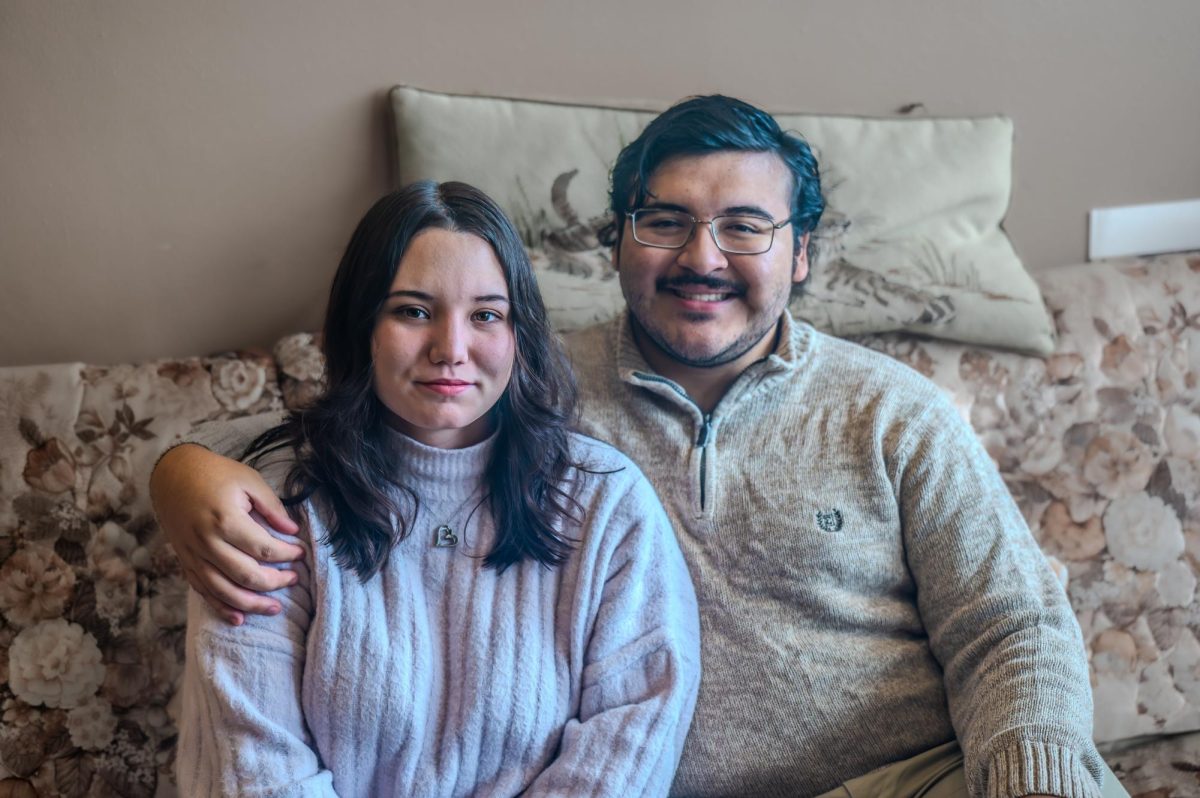By Mariam Asaad
asaadsye@grinnell.edu
To complement Sandrow Birk’s “American Qur’an” exhibition, Faulconer Gallery sponsered a panel discussion entitled “Islam in Iowa” this past Monday. Kamal Hammouda, adjunct Muslim prayer leader and local restaurateur, Mervat Youssef, a professor of Arabic and French and Imam Taha Tawil of the Mother Mosque in Cedar Rapids spoke about their experiences as Muslims in Iowa.
Tawil spoke about Iowa’s rich history as a hub for Muslims. The Mother Mosque was established in 1934 and is now denoted a historical site. The mosque hosts interfaith dialogue and has a community of supporters that extends beyond just the Muslims of the area.
Youssef, who moved to the United States twelve years ago for graduate school, did not at first recognize that her experiences here were influenced by the fact that she is a Muslim. Eventually, however, the effects of living in a place with a small Muslim community caused her to realize that religion was an inescapable part of how she was perceived and how her own experiences America were shaped.
“I somehow talked myself into thinking that my experience is defined more by being an Arab woman…but trying to dismiss religion as an identity marker didn’t work,” Youssef said. “I remembered that I do wear my religion on my head.”
Youseff noted the difficulties of living in an area where Muslims account for a small minority.
“I found my experience as a Muslim in Grinnell to be very different. It’s friendly, but it’s lonely,” Youseff said. “I still miss the call for prayer, the night prayers in Ramadan. You can’t find that here. Above all I miss the intellectual exchange among ordinary Muslims who are critically examining issues and social phenomenon from a religious perspective. I miss debates about religion without being expected to defend Islam.”
Hammouda, who’s been settled in Iowa since 1989 and in Grinnell since 1995, feels at home in Iowa and cherishes the diverse community and variety of opinions and beliefs.
“I found Iowa to be a great place to raise a family. Do I miss the larger community? Not really. I feel that I have a community,” he said. “One within which I have a great comfort level and a lot of support.You can talk about religion as openly as politics here and that is something you don’t always find in larger Muslim communities.”
One thing that Tawil, Youssef and Hammouda agreed upon is that despite the fact that they stand out as Muslims, they have never, not even in the aftermath of 9/11, felt threatened by members of the surrounding community.
Youssef recalled an instance when her car broke down on an Iowa highway and a stranger drove her all the way to South Dakota so that she could catch an appointment on time. Tawil mentioned how volunteers from the community helped out when the 2008 floods caused the mosque’s basement substantial damage. Hammouda had a friend and a pastor stop by after 9/11 to show their support for him and his family and make sure that they were not being harassed.
“These were just two examples of the many ways that made us realize we had found home,” Hammouda said.
Tawil echoed Hammouda’s appreciation for Iowa.
“Muslims in Cedar Rapids have never felt that they have a problem being part of the community. We are part of the community and it is a part of us,” Tawil said.




















































joseph • Nov 28, 2012 at 5:19 pm
I like your article and I noticed that you got an Arab name too or maybe you have an arab roots! good job Mariam!